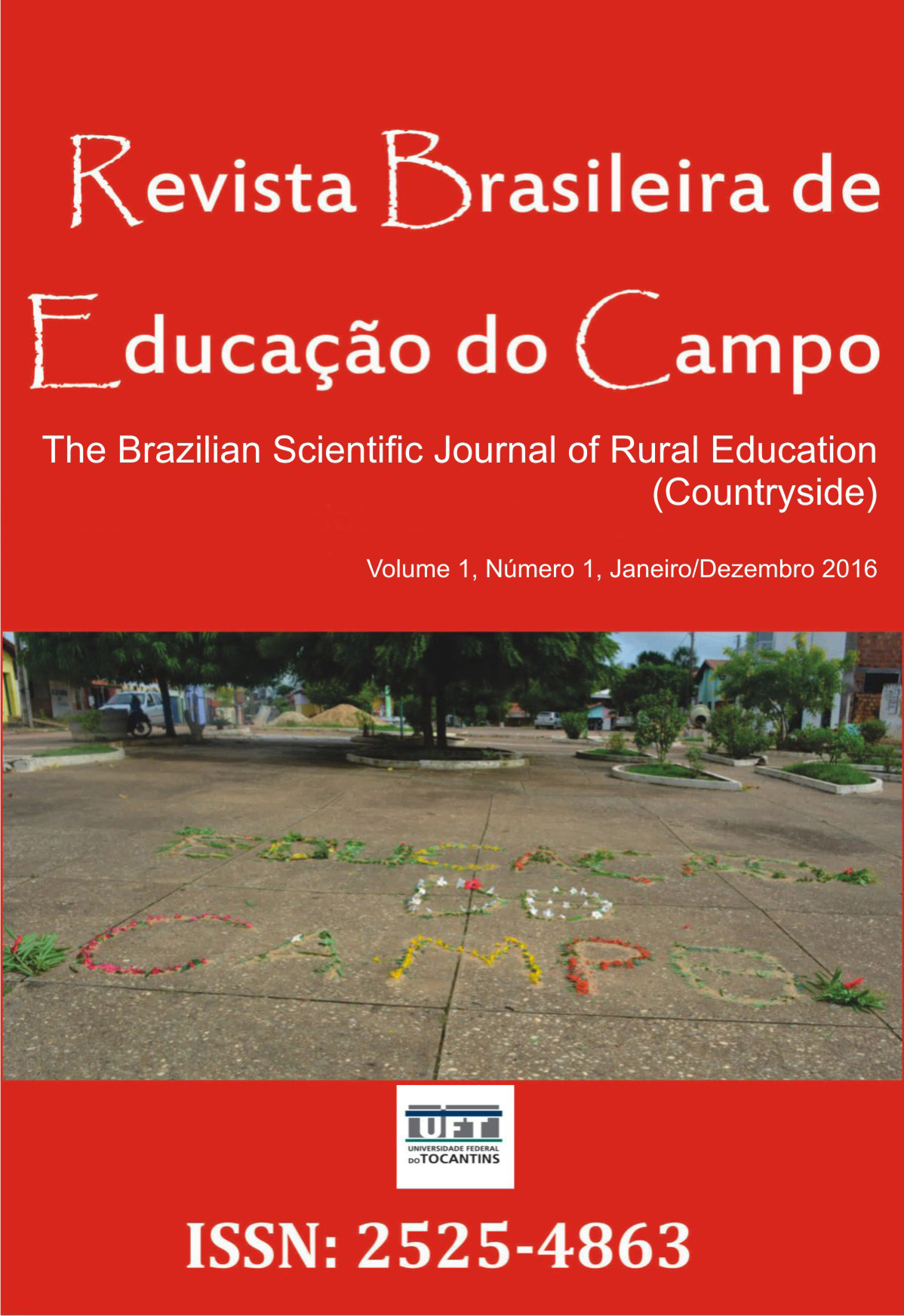Mathematical knowledge and history of life in the rural area of Marabá-PA
DOI:
https://doi.org/10.20873/uft.2525-4863.2016v1n1p128Schlagworte:
Educação do Campo, Narrativas, Práticas com Matemáticas.Abstract
ABSTRACT. The article presents results of a socio-educational Research Internship Teaching II, with emphasis on Mathematics held at Ipê flower community. The aim is to discuss practices with Financial Mathematics from subjects of narratives field. It is based on the stories of life and work of livestock activity of two producers of the said community milks. The results indicate that the appreciation of mathematical knowledge derived from social field practices contributes to the strengthening of some political principles, teaching and learning in school education field. Beyond the contextualized training, the reality and experiences of the camp communities as an object of study and source of knowledge.
Downloads
Literaturhinweise
Bampi, L. R. (2003). Governo etnomatemático: tecnologias do multiculturalismo. (Tese de Doutorado). Universidade Federal do Rio Grande do Sul, Porto Alegre.
Brasil. (1998). Parâmetros Curriculares Nacionais (PCN): Matemática. Secretaria de Educação Fundamental - Brasília: MEC/SEF.
Chevallard, Y. (1999). El análisis de las prácticas docentes en la teoría antropológica de lo didáctico. Recherchesen Didactique des Mathématiques, 19(2), 221-266.
D’Ambrosio, U. (2001). Educação pra uma sociedade em transição. Campinas, SP: Papirus.
D’Ambrosio, U. (2002). Etnomatemática: elo entre as tradições e a modernidade. Belo Horizonte: Autêntica.
Fecampo/Unifesspa. (2014). Projeto Pedagógico do Curso de Licenciatura em Educação do Campo. Marabá-PA: ICH.
Ferreira, S. (1991). Por uma teoria de Etnomatemática. Bolema, 7.
Gaia, C. A., & Guerra, R. (2014). Descortinando Práticas com Matemáticas: Conexões entre TAD e Etnomatemática; In Mendes, I., & Farias, C. A. Práticas socioculturais e Educação Matemática. São Paulo: Livraria da Física.
Garcez, P. (2001). Deixa eu te contar uma coisa: o trabalho sociológico do narrar na conversa cotidiana. In Ribeiro, B. T., Lima, C. C., & Dantas, M. T. (Orgs.). Narrativa, identidade e clínica. Rio de Janeiro: Ipub.
Megid, M. A. B. A., & Fiorentini, D. (2011). As Narrativas e o Processo de Aprendizagem Docente. Revista Interações, (18), 178 -203.
Mishler. (2002). Narrativa e identidade: a mão dupla do tempo. In Lopes, L. P., & Bastos, L. C. (Orgs.). Identidades: recortes multi e interdisciplinares. Campinas: Mercado de Letras.
Antunes-Rocha, M. I., & Martins, A. A. (2009). Formar docentes para a educação do campo: Desafios para os movimentos sociais e para a Universidade. In Rocha, M. I. A., & Martins, A. A. (Orgs.) Educação do campo: desafios para a formação de professores. Belo Horizonte: Autêntica.
Moura, A. (2005). Filosofia e Princípios de PEADS (PE) e do CAT (BA). In Baptista, F. M., & Batista, N. Q. Educação Rural Sustentabilidade do Campo. Feira de Santana, BA: SERTA.
Sacks, H. (1984). On doing “being ordinary”. In J. Atkinson, M., & Heritage, J. (Orgs.). Structures of social action: studies in conversation analysis. Cambridge: University Press.
Santos, M. (1994). Metamorfoses do espaço habitado. São Paulo: Hucitec.
Santos, M. (2003). A natureza do espaço: técnica, tempo, razão e emoção. São Paulo: Edusp.
Veröffentlicht
Zitationsvorschlag
Ausgabe
Rubrik
Lizenz
Creative Commons Attribution License
Creative Commons Attribution License
Proposal for Copyright Notice Creative Commons
1. Policy Proposal to Open Access Journals
Authors who publish with this journal agree to the following terms:
A. Authors retain copyright and grant the journal right of first publication with the work simultaneously licensed under the Creative Commons Attribution License that allows sharing the work with recognition of its initial publication in this journal.
B. Authors are able to take on additional contracts separately, non-exclusive distribution of the version of the paper published in this journal (ex .: publish in institutional repository or as a book), with an acknowledgment of its initial publication in this journal.
C. Authors are permitted and encouraged to post their work online (eg .: in institutional repositories or on their website) at any point before or during the editorial process, as it can lead to productive exchanges, as well as increase the impact and the citation of published work (See the Effect of Open Access).














